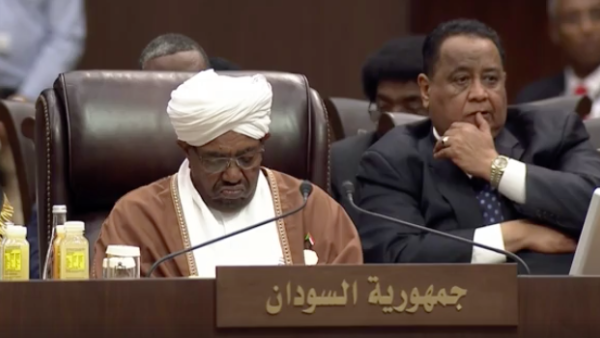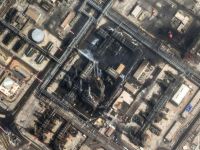Three counts of genocide. Two counts of war crimes. Five counts of crimes against humanity. The charge sheet issued by the International Criminal Court (ICC) against Sudan’s President Omar al-Bashir makes for grim reading.
Yet in the eight years since the warrant for his arrest was issued, a series of ICC member states - who are obligated under international law to arrest suspects on their territories - have failed to detain Bashir.
Last night, Jordan became the latest addition to that list, with the country’s King, Abdullah II, welcoming Bashir in Amman for the Arab League summit:
His Majesty King Abdullah II receives Sudanese President Field Marshal Omar Hassan Al-Bashir #Jordan #Sudan pic.twitter.com/TKkEpzTfsH
— RHC (@RHCJO) March 28, 2017
The reception came after rights body Human Rights Watch had called for Bashir to be barred from the country or arrested on arrival.
In a statement, Elise Kepler, the organization’s associate international justice director, had said that, “Jordan would be defying its international obligations as an ICC member if it allows al-Bashir to visit without arresting him.”
The organization released this video calling on Jordan to arrest Bashir after he arrived in the country:
Jordan signed the Rome Statute - the treaty that established the ICC - in 1998, and ratified it in 2002.
Bashir is wanted over allegations Sudanese forces carried out a sustained attack against the civilian population of the Sudanese region of Darfur between 2003 and 2008.
The Sudanese military is alleged to have killed, raped, tortured and displaced civilians the government saw as being close to rebel groups in the area. The UN has said that at least 300,000 people died in the conflict.
Bashir rejects the court’s authority to arrest or try him.
Jordan is also host to a population of Sudanese refugees, many of whom fled the fighting in Darfur. The UN refugee agency reported that 3,332 Sudanese were registered with them as of February 2017.
The Jordanian government deported more than 500 Sudanese refugees back to Sudan in December 2015. The move came after a sit-in in front of the UN refugee agency headquarters in Amman protesting what they saw as discrimination in the processing of their resettlement claims.
Dina Baslan, a Jordanian refugee rights activist who works with the Sudanese community in Amman, told Al Bawaba that it was a “disgrace” that Bashir was in the country.
“It is painful and appalling to see Sudan's President al-Bashir being welcomed to Jordan, a man accused of ethnic cleansing and genocide. As a Jordanian I apologize to the persecuted Darfuri brothers and sisters in Amman.”
Al Bawaba asked a Jordanian government spokesman if the refusal to arrest Bashir meant that Jordan was reconsidering its previous support for the ICC. A reply had not been received by the time of publication.
Jacob Burns







